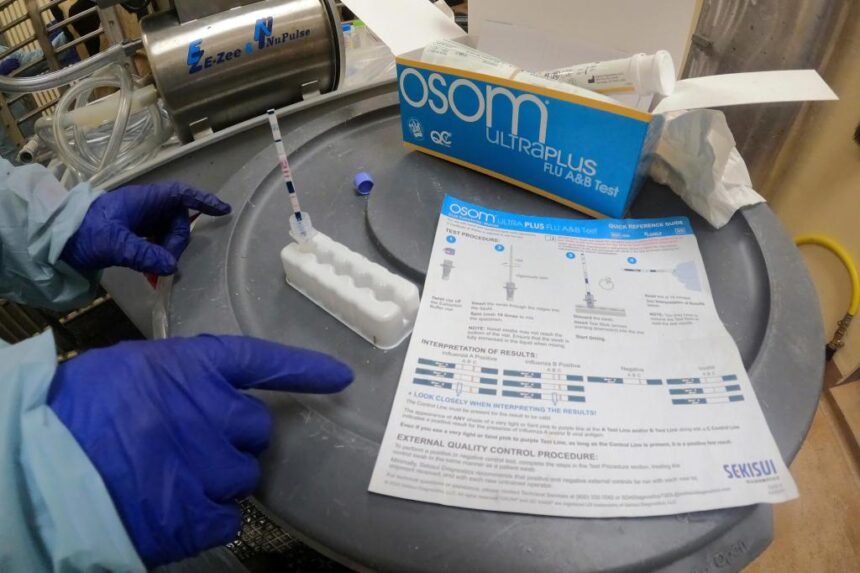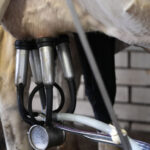The U.S. government has taken a significant step in monitoring the spread of bird flu by ordering testing of the nation’s milk supply. As of December 16, raw or unpasteurized milk from dairy farms and processors nationwide will be tested upon request. This move comes as a response to the detection of the Type A H5N1 virus in U.S. dairy cows earlier this year.
The Agriculture Department has announced that testing will commence in six states initially: California, Colorado, Michigan, Mississippi, Oregon, and Pennsylvania. Colorado had already implemented mandatory testing for licensed dairies back in July, with more than 60 herds in the state confirmed to be infected with the virus.
The main objective of the nationwide testing is to contain and eliminate the virus, ensuring the safety of farmworkers and animals. Agriculture Secretary Tom Vilsack emphasized the importance of this measure in controlling the spread of the virus across the country.
Health officials have reassured the public that the risk of contracting bird flu from milk remains low, as pasteurization effectively kills the virus. However, veterinarians, farmers, scientists, and academics have been advocating for nationwide testing for months to gain a better understanding of the situation.
The National Milk Producers Federation supports the USDA’s efforts to eradicate the virus, despite concerns among dairy farmers and processors about potential economic repercussions. The federal order mandates the testing of raw milk for bird flu and requires reporting of positive cases to the USDA to facilitate disease tracing in cattle herds.
Despite previous federal orders to test certain dairy cattle and prevent interstate movement without negative results, the virus has persisted. Testing has revealed high viral loads in raw milk from infected cows, highlighting the importance of monitoring the milk supply.
In the U.S., 58 people, including 10 in Colorado, have been infected with bird flu, primarily farm workers who had close contact with infected cows or poultry. Colorado has experienced outbreaks among poultry farmers, leading to the culling of millions of chickens this year.
Federal officials caution against consuming raw milk due to its potential to harbor harmful germs that can cause illness. In California, a farm was quarantined and milk distribution halted after the bird flu virus was detected in raw milk sold in stores. Raw Farm of Fresno issued a voluntary recall of raw milk and cream produced after a certain date.
As the government intensifies efforts to monitor and contain the spread of bird flu, it is crucial for dairy farmers and processors to comply with testing requirements to safeguard public health and prevent further outbreaks.






